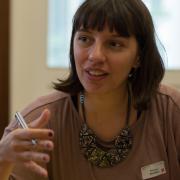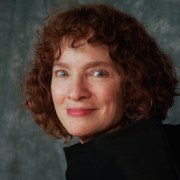Science centres and museums today are taking active part in gearing their audiences for the so-called "wicked problems" of the 21st century. At the same time, science centres are facing pressure to respond to challenges such as increased accountability, increased accessibility, and growing competition from leisure experiences. This means that these institutions must venture into unknown territories of diversifying their range of offers, develop new forms of collaborations, and find new ways to reach their audiences. In short, the 21st century requires a new set of outwardly justified capabilities if science centres are to remain relevant to their societies.
This session moves beyond well-rehearsed, esoteric discussions of the role of science centres in present-day society. Instead, we begin by mapping out the range of new science centre functions that have emerged within the last years: the cultural, social, networking, political, economic, and symbolic functions. We then present concrete and illustrative examples of these functions in action through a series of Pecha Kucha presentations. These examples will clearly demonstrate our experiences of implementing the new science centre functions, and the implications of doing so. We will use the second half of the session to invite the audience to join a discussion that examines how to expand our notions of what it means to be responsive to 21st century requirements.



